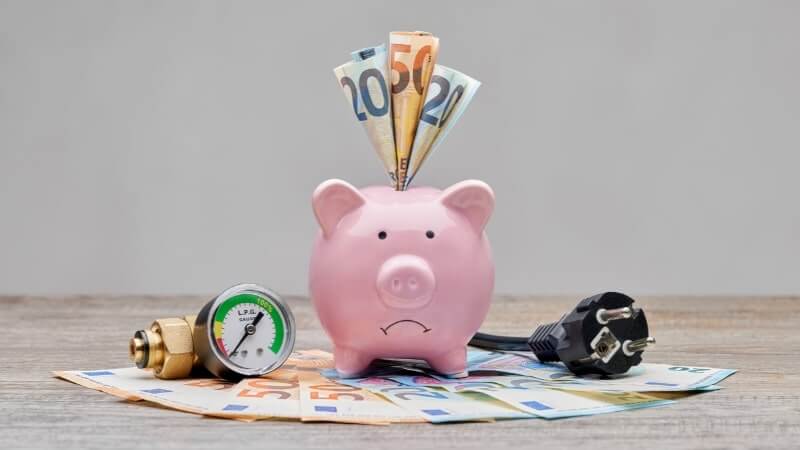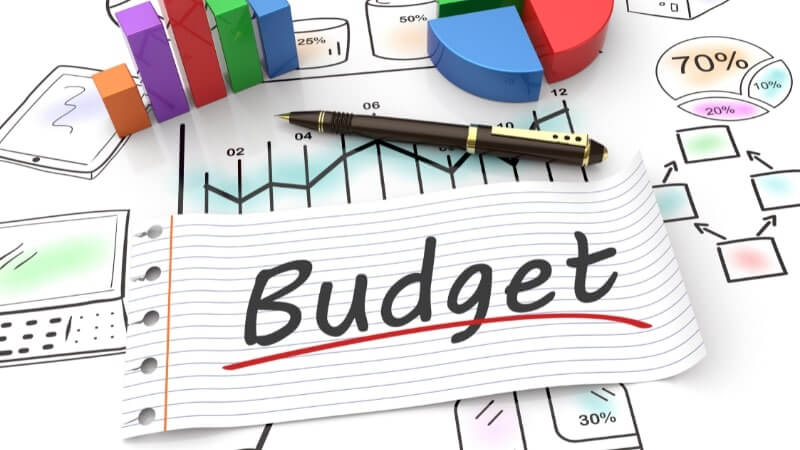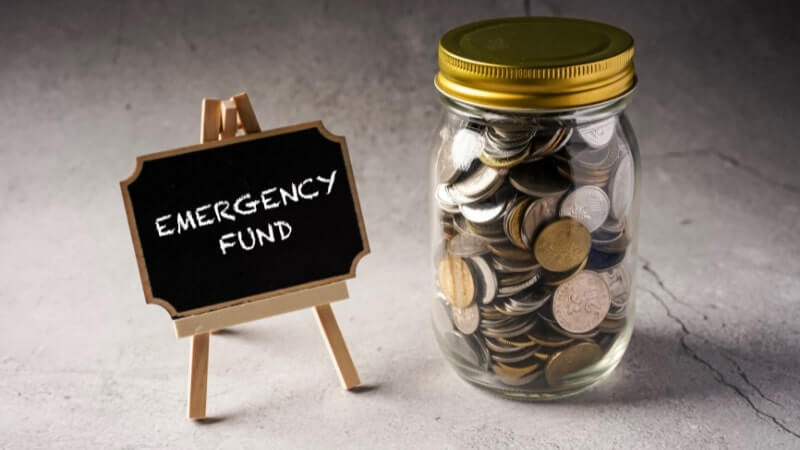8 Habits That Keep You Poor Even With A Reasonable Income
Have you ever wondered where all that money is going? Even after making a decent income, you are left with a few bucks by the end of each month. Have you ever tried to find out those undetectable holes through which all the funds are getting disappeared? First of all, you are not the only one who is dealing with such a situation. Second of all, we will help you know the exact reasons why you are failing to save money despite making a reasonable income.
Habits That Keep You, Poor, Even With A Reasonable Income-Whether the money stress is occasional or happens every month, it is one of the biggest problems that almost every individual faces. 70% of the population around the world aren’t able to save money even after having a decent job. That is the reason why many people are buried in debt and money lenders are getting richer day by day because they charge jaw-dropping interest on the loaned cash. This way is poor keeps becoming poorer. However, some people genuinely need money after getting impacted by unforeseen emergencies. But some often leave beyond their means and don’t think twice before making any financial decision. As a result, they not only fail to save money but also remain poor even with a reasonable income.
Table of Contents
What money habits keep you poor? Learn to improve them and amass money!
Managing money is the biggest task that each one of us encounters on a daily basis. People work hard, some even do extra shifts to earn additional money but they fail to save it for rainy days. This cycle continues and when the actual emergency pops up, financial stress shakes their world. To tackle such a situation, you need to analyze the problem first. Once you know what habits are pulling you down from saving stash, you can easily break them.
Bad Habits That Keep You Poor Even With A Reasonable Income, To learn more, keep reading
So here are some major poor money habits that are stopping you from becoming financially sound.
1. Prioritizing spending over saving

It is the biggest mistake that almost every person does. The moment you receive the pay cheque, you prioritize paying all the bills like utility, credit card, settled loan, etc. Once all these bills are settled, you might go holiday shopping, for dinner, or clubbing places. Here, you are wasting your money on a plethora of unessential things. As soon as you are through with all these things, you are hardly left with anything to save.
What to do?
It’s never too late. Do some corrections here, there is a high scope of achieving a lot. For that, you need to save your money first and then spend the remaining funds only on essentials. Set aside a fixed percentage of your monthly income and save it in a separate bank account that is not linked with any shopping, or food ordering app.
2. Not following a budget

Not preparing and following a poor budget means you will spend on both essential and non-essential items without thinking twice. A good budget helps you to stop loosening your wallet every time you see enticing things. Budgeting is a plan where you draft all your spending for the month beforehand. It helps people to stick only to their needs and avoid any debt.
What to do?
Whether you are comfortable making an Excel sheet or making it in your diary, jot down every essential thing that needs to be taken care of in a particular month. Avoid buying any unnecessary things, at least for a few months till the time you don’t save a decent amount for emergencies.
3. Not investing

After following the first two steps, hopefully, you start saving some money. But piling money or keeping it in a bank account will not provide you the interest that investing it would. You can earn a high return if you consider investing your money. If you are thinking of building long-term wealth, then investing is an essential step toward achieving this goal. You need to choose investment plans according to your financial goals like long, medium, or short.
What to do?
You can start with safe products like FDs, RDs, retirement funds, or PPFs. Buying health and life insurance is also a smart move. If you are interested in investing in stocks, dividends, or mutual funds, consider taking a professional financial adviser’s help. They can help you make the right choice of funds and where the risk of losing money is less. You can also check common mistakes every stock broker wants you to make before beginning your investment journey.
4. Not preparing an emergency fund

Life is very uncertain. Therefore, it is essential to save for emergencies. Any unpredictable event like the loss of a job, medical emergency, natural calamity, etc. can make you suffer financially. Not having funds for such rainy days can push you towards taking debt to tackle the situation. Many financial experts suggest that an ideal emergency fund should cater to your necessities for at least 6 months.
What to do?
You can dedicate 10% of your pay toward building an emergency fund. Consider selling off all unwanted items you have right now. You can cut off all unnecessary subscriptions like gyms, magazines, streaming services, etc. Avoid using credit cards, instead, carry cash wherever you go, so you have a fixed amount of money to spend. This way you will surely regain financial security in your life.
Also, check – What is the deductible in health insurance?
5. Relying on loans

Earlier people used to take loans for buying a house or car but nowadays they take loans for buying the smallest gadgets or kitchen appliances. Loans are good options for big purchases but if you paying EMIs for your iPhone or new microwave then this habit can lead you to the darkest hole of debt. This can badly impact your financial health. A good loan is taken for creating an asset that gives you great returns in the future like ‘real estate. Bad loans are quickies that are taken to buy gadgets or even worse to reduce another ongoing debt. Before taking loans you need to check whether you are able to afford them or if it is necessary.
What to do?
You need to keep a check on your expenditure and strictly avoid purchasing things based on your wants. Avoid taking loans. If you cannot help but take it then check your affordability. This is because being unable to pay back the loan with interest can push you into a debt cycle that never ends.
6. Not caring for the future

It is a famous saying that we should live our present to the fullest and not worry about the future. We don’t agree with this, especially when we are talking about money matters. Not caring for the future and just focusing on the present is a recipe for a great upcoming financial disaster. Many people take care of their present needs thinking that the future is unseen and believe in enjoying the very moment.
What to do?
Taking care of the present is good but solely thinking about the current wants and needs is bad. Securing the future is more than important, As we discussed in the above points unforeseen emergencies can knock on your door any day. Especially when you least expect it. Considering future events, start building funds.
Also, check – Essential Things to consider before you tie the knot
7. Overlooking debts

There is a huge percentage of people whose major chunk of their paycheck goes to minimizing their debts. Debts are the real enemies of your financial well-being. Things become even worse when people take debt to get rid of another. This way the cycle of debts never ends in their life. As a result, they fail to save a single penny from their monthly income.
What to do?
First of all, to avoid debts in your life, you should never take any. But if you are dealing with multiple debts due to some unavoidable circumstances, then prioritize paying them off ASAP. Paying the debts with the highest rate of interest should be your topmost goal every month. Plan out things that help you get rid of debts soon.
8. Impulsive buying

Are you someone who keeps buying stuff whether it is at a discounted price or not? Or else you keep putting unnecessary things in your cart and end up purchasing them without a prior plan. Then you suffer from impulsive buying which can lead to serious financial issues in your life. Many people justify these unplanned actions by saying it was a need, not a want. Random purchases wobble your monthly budget and put a hurdle between realizing your financial goals.
What to do?
Stick to your needs and avoid buying all those enticing and glittery things that you don’t require. If you will focus merely on your wants then you will get distracted from your goals. If you don’t work on this habit, you will keep swiping your credit cards to fund such purchases. Suppress your wants till the time you don’t realize your long and short-term financial goals.
Final thoughts
If you think that your spending is greater than your earnings, it is time to drop some bad habits and adopt good financial behaviors. Magic will not improve your situation, you need to take a sharp look at the spending habits that you have built over the years. If you work on yourself, control your impulsive purchases, and focus on saving more rather than spending it, then you can create wealth in no time.
Analyze the problem in the first step then move towards fixing it. You can end your money problems with a little tweak in your lifestyle and money habits. That’s all you need. Use your money wisely and prioritize saving.
Always remember, never sabotage your permanent financial stability for temporary happiness!










